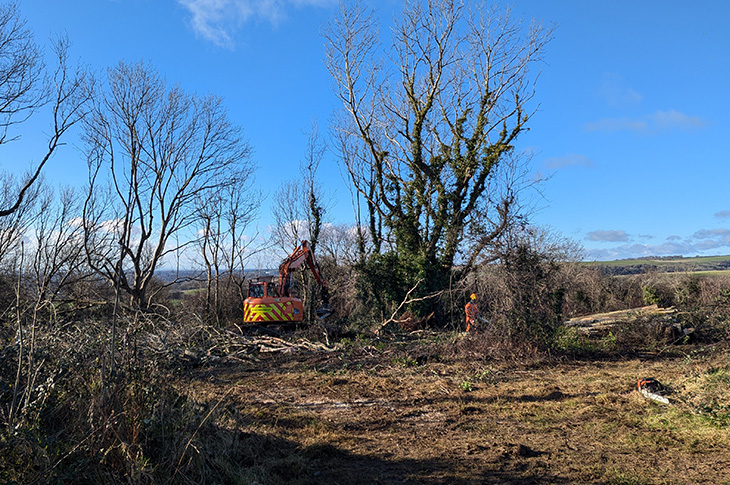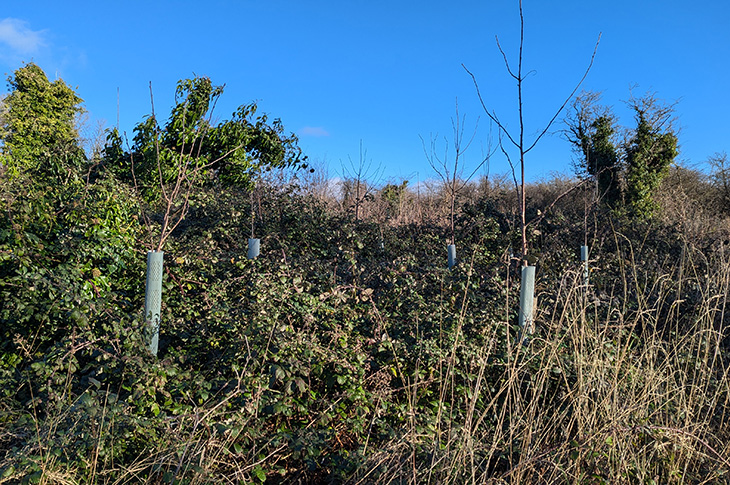Ash dieback
Released: Wednesday, 15 January 2025
We are in the process of felling trees from woodland areas that have been affected by the destructive disease ash dieback.
Ash dieback is a chronic fungal disease that has been slowly killing ash trees in the UK and across Europe. Ash is the most common tree across West Sussex.
The disease significantly weakens trees and results in crown dieback, which eventually renders the tree unsafe. In recent years, we have been felling trees clearly affected by the ash dieback to ensure public woodland paths remain safe.
Our contractor has started work at Lancing Ring led by our arboricultural inspector, who has surveyed which trees need to be felled. Work will then focus on affected trees at Sheepcombe Hanger at Cissbury Fields in Worthing.
Unfortunately, around 40 trees at Lancing Ring and more than 100 at Sheepcombe Hanger will need to be felled as they pose a significant risk to the public if they fall. We are still retaining trees that are showing some signs of resistance at this time.
Disturbance will be kept to a minimum and we request that you keep dogs under close control and keep out of any areas cordoned off for the work.
As with our previous ash dieback works, hundreds of new young trees, including species such as oak, hornbeam and field maple, will be planted to replace the lost trees and ensure our woodlands are conserved for future generations.
We'll plant new trees at the affected areas of Lancing Ring and Cissbury Fields next winter.
Photo: Ash trees being cut down at Lancing Ring

Photo: New young trees planted to replace trees that were cut down in previous years

(PR25-003)
Page last updated: 16 December 2025

